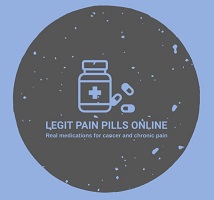Pain Relief for Cancer: Understanding Your Options
At Legit Pain Pills Online, discover high-quality pain relief for cancer and chronic conditions. Trust us for effective medicine tailored to your needs. Living with cancer often means managing significant pain. This pain can stem from the cancer itself or from treatments like surgery, chemotherapy, and radiation. Pain relief for cancer patients is a critical aspect of comprehensive cancer care. There are various approaches to managing cancer pain, and understanding these options can help patients and their caregivers make informed decisions.
Pharmacological treatments are the most common method for managing cancer pain. These include over-the-counter medications like acetaminophen and nonsteroidal anti-inflammatory drugs (NSAIDs) for mild pain, as well as stronger prescription medications such as opioids for more severe pain. Opioids, while effective, carry a risk of dependence and side effects, so they are typically used under strict medical supervision.
In addition to medications, other methods such as nerve blocks, epidural injections, and spinal cord stimulation can be used to target specific areas of pain. These interventional procedures are usually performed by pain management specialists and can provide significant relief for patients whose pain is not adequately controlled by medications alone.
Non-pharmacological treatments also play a vital role in cancer pain management. Techniques such as physical therapy, acupuncture, massage therapy, and cognitive-behavioral therapy can help alleviate pain and improve the overall quality of life. These methods can be used in conjunction with pharmacological treatments to provide a more holistic approach to pain management.
Cancer Pain Relief: Tailoring Treatment to Individual Needs
Cancer pain relief is not a one-size-fits-all solution. Each patient’s experience with pain is unique, and treatment plans must be tailored to address individual needs. The goal of cancer pain relief is to reduce pain to a manageable level while minimizing side effects and improving the patient’s overall well-being.

Effective cancer pain relief begins with a thorough assessment of the patient’s pain. This includes understanding the type, location, intensity, and duration of the pain, as well as any factors that exacerbate or alleviate it. Healthcare providers use this information to develop a personalized pain management plan that may include a combination of medications, interventional procedures, and non-pharmacological treatments.
For some patients, breakthrough pain—sudden, intense episodes of pain that occur despite ongoing pain management—can be a significant challenge. In these cases, fast-acting medications such as fentanyl lozenges or nasal sprays may be prescribed to provide rapid relief. Additionally, patients may benefit from adjustments to their long-term pain management regimen to better control their baseline pain levels.
It’s also important to consider the emotional and psychological aspects of cancer pain. Chronic pain can lead to feelings of anxiety, depression, and helplessness. Addressing these emotional factors through counseling, support groups, and other therapeutic interventions can enhance the overall effectiveness of cancer pain relief efforts.
Pain Management Cancer: Comprehensive Approaches to Care
Pain management for cancer patients involves a comprehensive approach that addresses both the physical and emotional aspects of pain. Effective pain management cancer care requires a multidisciplinary team of healthcare professionals, including oncologists, pain specialists, nurses, physical therapists, and mental health professionals.
The first step in pain management cancer care is to establish a clear diagnosis of the source and nature of the pain. This may involve imaging studies, laboratory tests, and consultations with various specialists. Once the underlying cause of the pain is identified, the healthcare team can develop a targeted treatment plan.
Medications remain a cornerstone of pain management cancer care. Opioids, such as morphine, oxycodone, and hydromorphone, are often used to treat moderate to severe cancer pain. These medications can be administered orally, intravenously, or through transdermal patches, depending on the patient’s needs and preferences. Adjuvant medications, such as antidepressants and anticonvulsants, may also be used to enhance pain relief and address specific types of pain, such as neuropathic pain.
Interventional procedures, such as nerve blocks and spinal cord stimulation, can provide significant relief for certain types of cancer pain. These procedures are typically performed by pain management specialists and may be used in conjunction with medications to achieve optimal pain control.
Non-pharmacological treatments are also an essential component of pain management cancer care. Physical therapy can help improve mobility and reduce pain, while techniques such as acupuncture and massage therapy can provide additional relief. Cognitive-behavioral therapy and other psychological interventions can help patients cope with the emotional impact of chronic pain and improve their overall quality of life.
Effective communication between patients and their healthcare team is crucial for successful pain management cancer care. Patients should feel empowered to discuss their pain openly and honestly, and healthcare providers should actively listen and respond to their concerns. Regular follow-up appointments and adjustments to the treatment plan are often necessary to ensure that pain is adequately controlled and that the patient’s needs are being met.
Latest Cancer Drugs: Innovations in Oncology
The field of oncology is constantly evolving, with new cancer drugs being developed and approved at a rapid pace. These latest cancer drugs offer hope for improved outcomes and better quality of life for patients with various types of cancer. Understanding the latest advancements in cancer treatment can help patients and their caregivers stay informed about their options.
One of the most significant advancements in recent years is the development of targeted therapies. Unlike traditional chemotherapy, which attacks all rapidly dividing cells, targeted therapies are designed to specifically target cancer cells while sparing healthy cells. This approach can lead to fewer side effects and improved efficacy. Examples of targeted therapies include tyrosine kinase inhibitors (such as imatinib for chronic myeloid leukemia) and monoclonal antibodies (such as trastuzumab for HER2-positive breast cancer).
Immunotherapy is another groundbreaking area of cancer treatment. These drugs work by harnessing the body’s immune system to recognize and attack cancer cells. Checkpoint inhibitors, such as pembrolizumab and nivolumab, have shown remarkable success in treating various cancers, including melanoma, lung cancer, and bladder cancer. CAR-T cell therapy, which involves genetically modifying a patient’s own T cells to target cancer cells, has also shown promise in treating certain types of leukemia and lymphoma.

Advancements in precision medicine have also led to the development of personalized cancer treatments. By analyzing the genetic makeup of a patient’s tumor, healthcare providers can identify specific mutations and tailor treatment plans accordingly. This approach allows for more effective and individualized treatment, with the potential for better outcomes and fewer side effects.
In addition to these cutting-edge therapies, researchers are continually exploring new drug combinations and treatment regimens to enhance the effectiveness of existing cancer treatments. Clinical trials play a crucial role in this process, providing patients with access to the latest experimental therapies and contributing to the advancement of cancer care.
Effective Cancer Treatments: Combining Therapies for Optimal Results
Effective cancer treatments often involve a combination of therapies to achieve the best possible outcomes. This multimodal approach can address different aspects of the disease and improve overall survival rates and quality of life for patients.
Surgery is a common treatment for many types of cancer, particularly when the tumor is localized and can be removed entirely. Advances in surgical techniques, such as minimally invasive and robotic-assisted surgery, have improved the precision and outcomes of cancer surgeries while reducing recovery times and complications.
Radiation therapy is another cornerstone of cancer treatment. It uses high-energy radiation to kill cancer cells and shrink tumors. Modern radiation therapy techniques, such as intensity-modulated radiation therapy (IMRT) and stereotactic body radiation therapy (SBRT), allow for more precise targeting of tumors, minimizing damage to surrounding healthy tissue.
Chemotherapy remains a widely used treatment for various cancers. It involves the use of drugs that kill rapidly dividing cancer cells. While chemotherapy can be highly effective, it also comes with significant side effects, such as nausea, fatigue, and hair loss. Researchers are continually working to develop new chemotherapy drugs with fewer side effects and to identify the most effective drug combinations for different types of cancer.
Targeted therapies and immunotherapy, as mentioned earlier, are also essential components of effective cancer treatment. These therapies can be used alone or in combination with other treatments to enhance their effectiveness. For example, combining immunotherapy with chemotherapy has shown promising results in treating certain types of cancer, such as non-small cell lung cancer.
Supportive care is another critical aspect of effective cancer treatment. This includes managing side effects, providing nutritional support, and addressing the emotional and psychological needs of patients. Palliative care, which focuses on improving the quality of life for patients with advanced cancer, is an integral part of comprehensive cancer care.
Ultimately, the most effective cancer treatment plans are those that are tailored to the individual patient. Factors such as the type and stage of cancer, the patient’s overall health, and their personal preferences all play a role in determining the best course of action. A multidisciplinary team of healthcare professionals works together to develop and implement these personalized treatment plans, ensuring that patients receive the most effective and compassionate care possible.
New Cancer Medications: Promising Developments on the Horizon
The development of new cancer medications is a dynamic and rapidly advancing field. Researchers and pharmaceutical companies are continuously working to discover and bring to market new drugs that can improve outcomes for cancer patients. These new cancer medications offer hope for better treatment options and improved survival rates.
One promising area of research is the development of new targeted therapies. These drugs are designed to specifically target the molecular changes that drive cancer growth. For example, researchers are exploring new inhibitors that target specific genetic mutations in various cancers, such as ALK inhibitors for non-small cell lung cancer and BRAF inhibitors for melanoma. These targeted therapies have the potential to provide more effective treatment with fewer side effects compared to traditional chemotherapy.
Another exciting development is the advancement of immunotherapy. Researchers are investigating new ways to enhance the immune system’s ability to fight cancer. This includes the development of novel checkpoint inhibitors, cancer vaccines, and adoptive cell therapies. For example, bispecific T-cell engagers (BiTEs) are a new class of immunotherapy drugs that can simultaneously bind to cancer cells and T cells, bringing them together to facilitate the immune attack on the cancer.
In addition to targeted therapies and immunotherapy, researchers are also exploring new approaches to chemotherapy. This includes the development of new chemotherapy drugs with improved efficacy and safety profiles, as well as novel drug delivery systems that can more precisely target cancer cells. For example, nanoparticle-based drug delivery systems are being investigated for their ability to deliver chemotherapy drugs directly to tumors while minimizing exposure to healthy tissue.

Combination therapies are another area of active research. By combining different types of treatments, such as targeted therapy, immunotherapy, and chemotherapy, researchers hope to achieve synergistic effects that can enhance the overall effectiveness of cancer treatment. Clinical trials are ongoing to evaluate the safety and efficacy of these combination approaches in various types of cancer. Buy chronic pain relief online, Pain Relief for Cancer,Cancer Pain Relief,Cancer Drugs,Effective Cancer Treatments,New Cancer Medications.
Finally, the field of precision medicine continues to drive the development of new cancer medications. By analyzing the genetic and molecular characteristics of individual tumors, researchers can identify new drug targets and develop personalized treatment plans. This approach has the potential to revolutionize cancer care, offering more effective and tailored treatment options for patients.
Overall, the development of new cancer medications is a testament to the progress being made in the fight against cancer. These advancements offer hope for improved treatment options and better outcomes for patients, bringing us closer to the goal of curing cancer.

